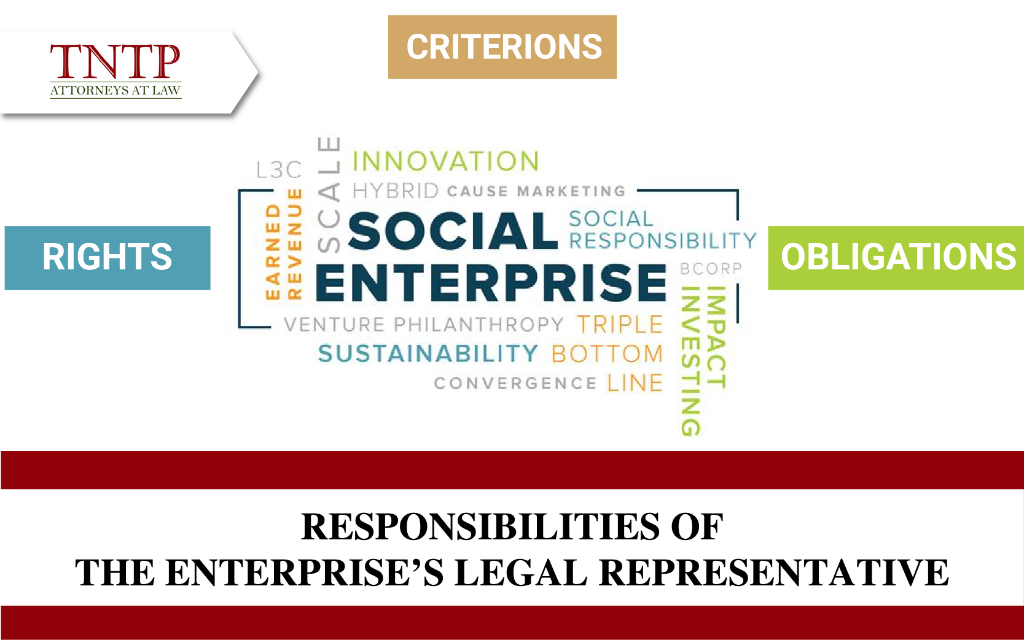A social enterprise is a particular type of enterprise, whose business activities are aimed at achieving social goals, with the profits reinvented for such goals or for the community, instead of profit maximization for company members, shareholders or owners. In this article, we will analyze the criteria, rights and obligations of social enterprises in Vietnam.
1. Criteria of social enterprises:
According to Article 10 of Enterprise Law 2020, the criteria to become a social enterprise include:
- Be registered in accordance with the Enterprise Law. Depending on the social enterprise’s type including private enterprise, partnership, limited company or joint stock company, this enterprise shall carry out the registration procedures corresponding to its type.
- Operate for the purposes of resolving social and environmental issues for public interests. This is a fundamental difference compared to ordinary enterprises. The primary goal of most business owners and partners is to make a profit. Meanwhile, social enterprises are established with the main purpose of resolving social and environmental issues for the public interest instead of making a profit.
- Use at least 51% of the annual post-tax profit for re-investment to achieve registered targets. Unlike ordinary enterprises whose all post-tax profits can be used upon the enterprise’s will (as long as it is in accordance with the laws), social enterprises must deduct more than half of their profits after tax (at least 51%) to resolve social and environmental issues as registered.
2. Rights of social enterprises
Social enterprises are basically an enterprise, given so, they have the basic rights of an enterprise as stipulated in Article 7 of Enterprise Law 2020. Besides, because they are also a particular type, social enterprises have some further rights as follows:
- The owner or executive of a social enterprise shall be enabled to obtain relevant licenses and certificates prescribed by law.
- A social enterprise may raise and receive donations from individuals, enterprises, non-governmental organizations and other Vietnamese and foreign organizations to cover its administrative expenses and operating costs.
- The State promulgates policies to encourage, support and promote the development of social enterprises.
3. Obligations of social enterprises
Social enterprises must fully comply with the general provisions on obligations of enterprises in Article 8 of Enterprise Law 2020 and their specific obligations, including:
- Maintain operational goals and specified conditions throughout the operation.
- Do not use donations for purposes other than covering administrative expenses and operating costs or resolving the social and environmental issues registered by the enterprise.
- When receiving donations and aid, the enterprise needs to submit annual reports on its operation to a competent authority.
- Inform the competent authority when a social or environmental objective is terminated or profit is not used for re-investment in accordance with the law.
Social enterprises in Vietnam operate under different organizational forms and legal statuses. Because its main purpose is towards society such as providing public services, protecting the environment, providing jobs for disadvantaged people, etc., social enterprises are entitled to relevant preferential policies depending on their field, area or purpose. This fact encourages businesses to operate in the name of social enterprises.
Above is the article “Criteria, rights and obligations of social enterprises”. We hope this article is useful to you.
Sincerely,







